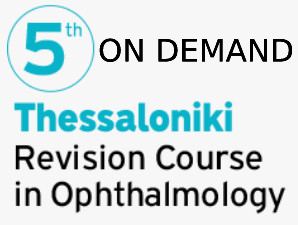Empeslidis T., Storey M., Giannopoulos T., Konidaris V., Tranos P., Panagiotou E., Voudouragkaki I., Konstas A.
PMID: 31102206, DOI: 10.1007/s12325-019-00971-0
Abstract
Emerging anti-vascular endothelial growth factor (anti-VEGF) therapies for neovascular age-related macular degeneration (nAMD) have revolutionised medical retina practice and the management and eventual outcome of nAMD. Recent research has focused on evaluating and comparing the efficacy of the two most widely employed anti-VEGF agents, bevacizumab and ranibizumab; however, a subgroup of patients with nAMD demonstrates a suboptimal response to standard therapy. We have therefore conducted a review of pertinent studies published until August 2018 which have documented the clinical efficacy when switching to a different anti-VEGF. Evidence on baseline disease characteristics, injection frequency and disease outcome has been obtained for patients treated with ranibizumab 0.5 mg and/or bevacizumab 1.25 mg and were switched to aflibercept 2 mg. Our review identified 45 studies investigating switching to aflibercept. Our review showed a clear anatomical benefit after the switch in terms of central retinal thickness and pigment epithelium detachment characteristics, whereas the functional outcomes were variable. Remarkable heterogeneity was documented among the relevant studies with regard to several factors including the baseline characteristics of the cohorts, the non-response definition and previous treatment protocols. Larger prospective trials with appropriate control arms are therefore required to elucidate the potential benefit when switching between anti-VEGF agents in refractory nAMD.
Πατήστε εδώ για να δείτε τη δημοσίευση
Source: Pubmed

